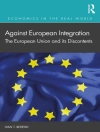There has been a growing chorus of political analysts with doomsday predictions of an American public that is uncivil, disengaged, and alienated. And it′s only getting worse with a younger generation of Americans who do not see the value in voting. The good news is that the bad news is wrong. In this Third Edition of The Good Citizen, Russell Dalton uses current national public opinion surveys, including new evidence from 2018 Pew Center survey data, to show how Americans are changing their views on what good citizenship means. It′s not about recreating the halcyon politics of a generation ago, but recognition that new patterns of citizenship call for new processes and new institutions that reflect the values of the contemporary American public. Trends in participation, tolerance, and policy priorities reflect a younger generation that is more engaged, more tolerant, and more supportive of social justice. The Good Citizen shows how a younger generation is creating new norms of citizenship that are leading to a renaissance of democratic participation. An important comparative chapter in the book showcases cross-national comparisons that further demonstrate the vitality of American democracy.
Зміст
Tables and Figures
Preface to the Third Edition
Acknowledgments
About the Author
Chapter 1 Citizenship and the Transformation of American Society
The Social Transformation of America
The Evolution of Citizenship Norms
The Plot of This Book
Conclusion
PART I DEFINING THE NORMS OF CITIZENSHIP
Chapter 2 The Meaning and Measurement of Citizenship
Citizenship in Theory
What Is a “Good” Citizen?
The Two Faces of Citizenship
The Distribution of Citizenship Norms
What Kind of Citizenship?
Appendix
Chapter 3 Forming Citizenship Norms
A Generational Gap?
The Rising Tide of Social Status
Gender and Ethnicity Patterns
Citizenship and Religion
Partisan Differences in Citizenship
Bringing the Pieces Together
The Social Roots of Citizenship
PART II THE CONSEQUENCES OF CITIZENSHIP
Chapter 4 The Rising Tide of Political Activity
The Forms of Political Action
Voting and Elections
Non-electoral Activity
Old Repertoires and New Repertoires
Citizenship Norms and Participation
Engaged Democrats
Chapter 5 (In)Tolerance in America?
How to Measure Political Tolerance
The Unconventional Evidence: Rising Political Tolerance
Who Is Tolerant, and Who Isn’t
Citizenship and Tolerance
Citizenship and Tolerance: A Second Look
Tolerance in America
Chapter 6 Is Government the Problem or the Solution?
Linking Citizenship Norms to Policy Priorities
We Want Government to Be a Big Spender
Our Spending Priorities
Combining Predictors
Public Policy Preferences
Citizenship Norms and Voting Choice
Citizenship and Public Policy
Chapter 7 The Good Citizen and Democratic Governance
Changing Images of Government
Trusting Political Authorities
Citizenship Norms and Trust in Authorities
Trusting Political Institutions
Democratic Principles
Feelings of National Pride
Citizenship, Trust, and Democracy
“America, Right or Wrong”
Chapter 8 In Tocqueville’s Footsteps
The Norms of Citizenship
The Consequences of Citizenship
Participation since Tocqueville
Tolerance
Democratic Norms
Dear Chicken Little: The Sky Is Not Falling
PART III CONCLUSION
Chapter 9 The Two Faces of Citizenship
Balancing the American Political Culture
A Culture Tug-of-War
Understanding Millennials
Tocqueville Revisited
Norm Shift and American Democracy
Appendix: Statistical Primer
Endnotes
Index
Про автора
Russell Dalton is a professor at the University of California, Irvine and former director of the Center for the Study of Democracy. His research and teaching focuses on the changing nature of citizen politics in contemporary democracies. He has received a Fulbright Research Fellowship, a German Marshall Fund Fellowship, Barbra Streisand Center Fellowship and POSCO Research Fellowship. He has served on the boards of the American National Election Study, the British Election Study and the Comparative Study of Electoral Systems. Among his recent authored or edited books are The Apartisan American (2012), Political Parties and Democratic Linkage (2011), Citizens, Context and Choice (2011), The Good Citizen (2009), Oxford Handbook of Political Behavior (2007), Citizens, Democracy and Markets around the Pacific Rim (2006), Democratic Challenges, Democratic Choices: The Erosion of Political Support in Advanced Industrial Democracies (2004), Democracy Transformed? The Expansion of Citizen Access in Advanced Industrial Democracies (2003), and Parties without Partisans: Political Change in Advanced Industrial Democracies (co-editor, 2001). He has also appeared in six feature-length Hollywood movies.












